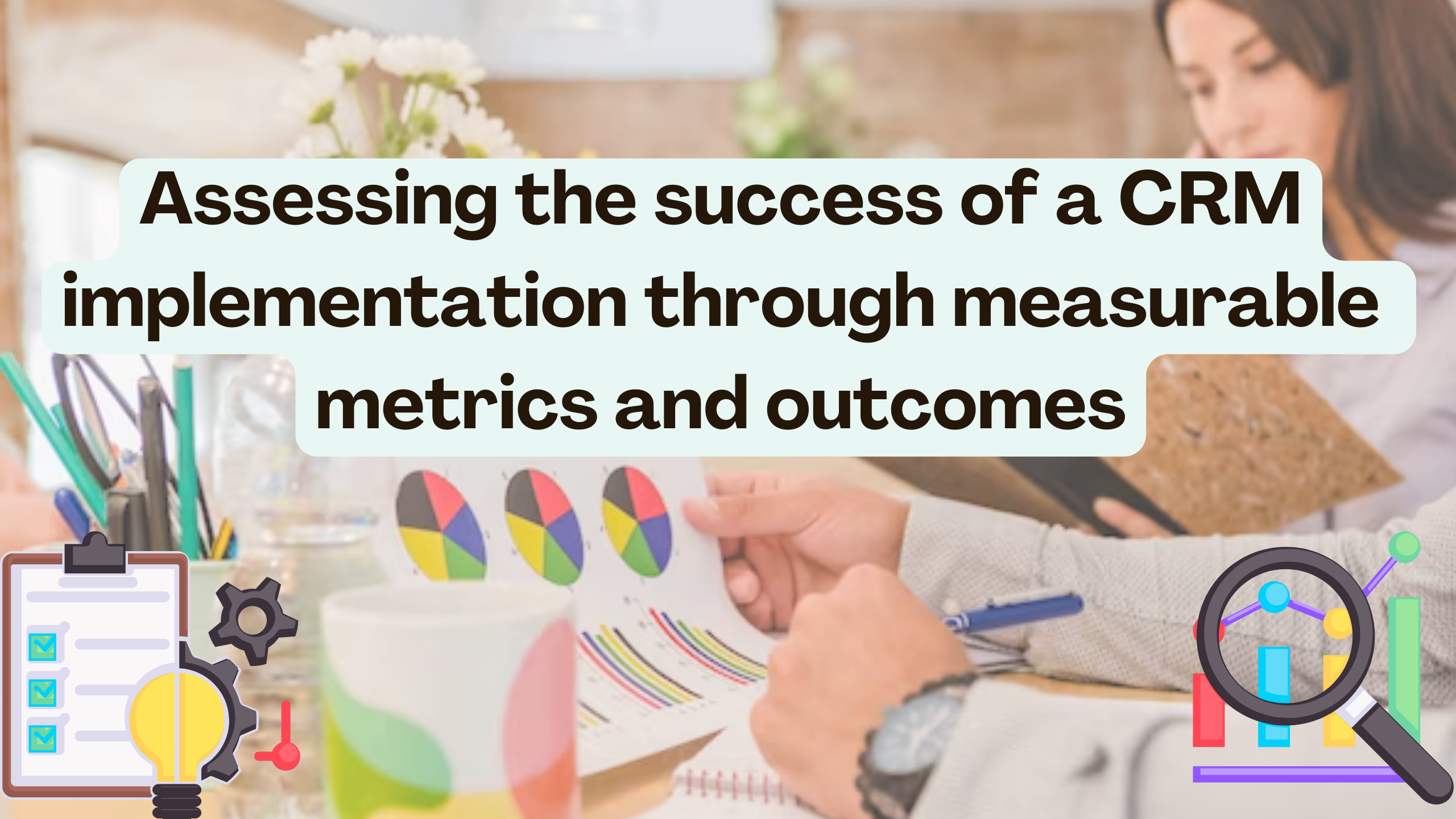Assessing the success of a CRM implementation through measurable metrics and outcomes
- Expense Management Software Credit Cards Investing Business Solutions


Assessing the Success of a CRM Implementation through Measurable Metrics and Outcomes
Implementing Customer Relationship Management (CRM) software is a strategic move for businesses aiming to enhance customer interactions and streamline processes. However, determining the success of a CRM implementation requires a comprehensive analysis of measurable metrics and outcomes. In this article, we explore key indicators and showcase relevant SaaS products that contribute to the effectiveness of CRM implementations.
Key Metrics for Assessing CRM Success
1. User Adoption Rates
- A successful CRM implementation hinges on user acceptance. High user adoption rates indicate that the CRM system aligns with the workflow, ensuring that the team actively engages with the platform.
2. Data Accuracy and Completeness
- The quality of data entered into the CRM is crucial. Accuracy and completeness ensure that businesses can rely on the CRM data for informed decision-making.
3. Customer Satisfaction Scores
- Direct feedback from customers helps assess the impact of CRM on their experience. Integrating customer satisfaction surveys within the CRM provides valuable insights.
4. Sales Revenue and Conversion Rates
- Improved sales revenue and conversion rates signify that the CRM is effectively supporting the sales team in closing deals and driving revenue growth.
5. Response Time and Resolution Rates
- For customer support teams, CRM success can be measured by the speed and effectiveness of issue resolution. Reduced response times and high resolution rates are positive indicators.
Relevant SaaS Products for CRM Success
1. HubSpot CRM
- HubSpot CRM offers a user-friendly interface, ensuring high user adoption. It integrates seamlessly with other HubSpot tools, providing a comprehensive solution for marketing, sales, and customer service.
2. Salesforce
- Salesforce is a powerhouse for CRM, offering extensive customization and scalability. It enables businesses to track customer interactions across various touchpoints.
3. Zoho CRM
- Zoho CRM is known for its data accuracy features. It ensures data integrity by providing tools for data cleansing, deduplication, and validation.
4. Freshdesk
- Freshdesk contributes to CRM success by offering robust customer support features. It helps in managing customer interactions and measuring response time and issue resolution rates.
5. Pipedrive
- Pipedrive focuses on sales processes, aiding in improving conversion rates. Its visual interface enhances user adoption, making it a valuable asset for sales teams.
Conclusion
Assessing the success of a CRM implementation involves a multifaceted approach, considering various metrics and outcomes. Businesses must continuously analyze and refine their CRM strategies to adapt to evolving customer needs and industry trends.
Elevate Your CRM Experience with Subscribed.FYI
Subscribed.FYI simplifies the SaaS landscape, including CRM tools. Unlock exclusive deals, compare features, and make informed decisions tailored to your business needs.
Unlock Exclusive CRM Deals at Subscribed.FYI








